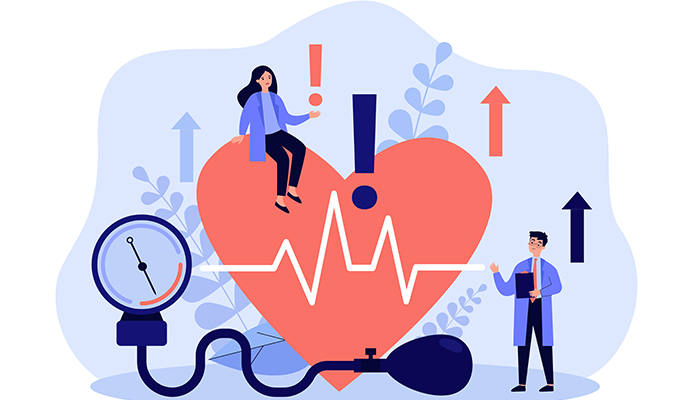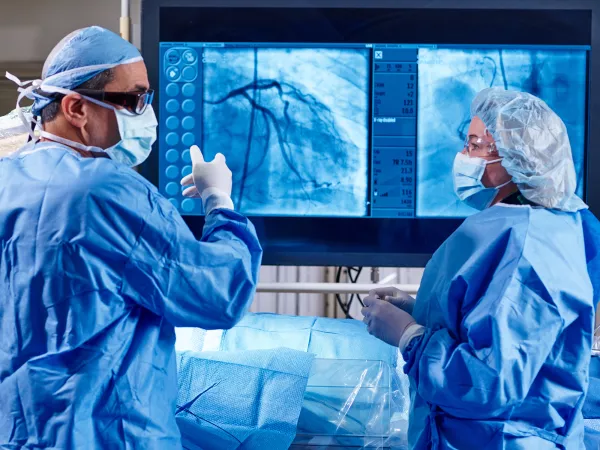Recognizing the Significance of Cardiology in Modern Healthcare Providers
Cardiology plays a vital duty in contemporary healthcare, especially as heart condition continues to be the leading cause of mortality worldwide. Breakthroughs in diagnostics and therapy have actually changed person care, making it possible for earlier treatments and enhanced outcomes. The change towards preventative cardiology equips individuals to handle their wellness proactively. As technology remains to advance, the integration of ingenious services might additionally redefine cardiology's effect on public health and wellness, motivating a closer evaluation of emerging trends and their ramifications.
The Occurrence of Heart Problem and Its Influence on Public Wellness
Although cardiovascular disease stays the leading cause of death worldwide, its effect extends far beyond individual clients to affect public health systems and economies. The high prevalence of cardiovascular disease positions a significant strain on healthcare resources, necessitating increased financing for prevention, rehabilitation, and therapy programs. Public wellness efforts should resolve danger factors such as excessive weight, smoking, and sedentary way of livings, which contribute greatly to the rising incidence of heart conditions.Moreover, the economic problem associated with heart condition is enormous, including not just straight medical costs yet additionally indirect costs related to lost productivity and early mortality. Areas face obstacles in handling these costs, often causing differences in healthcare access and results. As the population ages and lifestyle-related risks proceed to intensify, the urgency for reliable cardiology interventions becomes critical. Addressing heart illness is not only a matter of specific wellness yet also a critical public health and wellness top priority.
Advancements in Cardiac Diagnostics and Imaging Techniques
Current improvements in cardiac diagnostics and imaging strategies have actually revolutionized the area of cardiology, boosting the ability to spot and monitor cardiovascular disease. Strategies such as cardiac MRI, CT angiography, and echocardiography have actually become increasingly innovative, providing comprehensive images of cardiac structures and functions. These methods permit the early recognition of conditions like coronary artery disease, cardiac arrest, and valvular disorders.Moreover, innovations in non-invasive diagnostics, such as wearable technology and remote surveillance devices, have actually encouraged individuals and health care carriers. These devices facilitate real-time tracking of heart rhythms and various other important indicators, resulting in timely treatments. Additionally, man-made intelligence is being integrated into imaging analysis, enhancing precision and performance in medical diagnosis.
Technologies in Therapy Alternatives for Heart Conditions
Recent advancements in cardiology have caused significant developments in treatment choices for heart problems. These consist of advanced surgical methods that boost procedural outcomes and arising medicines that offer new methods for treatment. As the area progresses, these technologies play a crucial role in improving individual treatment and end results.
Advanced Surgical Techniques
Advancements in surgical techniques have actually transformed the landscape of cardiology, providing brand-new hope for patients with heart disease. Minimally intrusive procedures, such as catheter-based interventions, have considerably reduced recovery times and healthcare facility stays. Strategies like robotic-assisted surgery boost accuracy, allowing doctors to browse intricate anatomical structures with better precision. Innovations in imaging modern technology promote real-time visualization during procedures, boosting results. Transcatheter aortic valve substitute (TAVR) exhibits an innovation in treating aortic constriction, allowing shutoff replacement without open-heart surgery. In addition, hybrid approaches that incorporate surgical and catheter-based approaches supply customized options for various cardiac concerns. These sophisticated surgical strategies not just improve person security yet likewise expand therapy options, highlighting the critical duty of technology in modern-day cardiology practices.
Arising Treatments and medicines
As the landscape of cardiology continues to evolve, emerging medications and treatments play an essential function in enhancing therapy alternatives for heart disease. Developments such as unique anticoagulants and advanced lipid-lowering agents have changed the monitoring of heart diseases, significantly minimizing patient morbidity and mortality. Additionally, the advancement of genetics therapies and regenerative medicine offers encouraging avenues for treating problems previously considered incurable. Professional tests are continually disclosing the efficacy of these therapies, pressing the borders of traditional treatments. In addition, the combination of electronic health modern technologies assists in personalized medicine, enabling for customized treatment plans based on hereditary and way of living variables. Jointly, these innovations emphasize the dynamic nature of cardiology, improving client results and redefining requirements of care in modern health care.
The Role of Preventive Cardiology in Individual Care
Preventive cardiology plays a necessary role in person treatment by focusing on the identification of danger factors that add to heart problem. With way of life modification approaches and very early detection techniques, doctor can effectively decrease the incidence of cardiovascular events - Cardiology care. This proactive method not just improves client results but also promotes long-lasting wellness
Threat Factor Identification
While heart diseases remain a leading root cause of morbidity and death worldwide, effective danger factor identification works as a foundation of precautionary cardiology. Recognizing threat elements such as hypertension, diabetes, household, and hyperlipidemia history is necessary for early treatment. Medical care experts make use of different evaluating techniques to evaluate these elements, enabling customized preventive actions. Additionally, comprehending a patient's lifestyle selections, such as smoking and physical lack of exercise, even more notifies danger evaluations. This detailed evaluation makes it possible for medical professionals to establish individualized treatment strategies intended at mitigating risks. By prioritizing risk aspect identification, medical care systems can improve patient results and minimize the total problem of heart diseases, eventually adding to boosted public health approaches and source allowance.
Way Of Living Alteration Strategies
A wide range of research studies highlights the vital duty of lifestyle alteration techniques in decreasing heart disease risk. These methods include dietary modifications, boosted physical task, smoking cigarettes cessation, and weight monitoring. By embracing a heart-healthy diet plan abundant in fruits, vegetables, whole grains, and lean proteins, individuals can decrease cholesterol levels and high blood pressure. Normal exercise reinforces the heart and boosts total cardiovascular health and wellness. In addition, quitting smoking cigarettes considerably decreases the threat of heart problem and boosts recovery rates for those with status quo. Weight monitoring better adds to cardio wellness by minimizing various other risk elements such as diabetic issues and high blood pressure. Executing these way of life alters not just promotes specific wellness yet likewise works as a keystone of precautionary cardiology in client care.
Early Detection Techniques
Lifestyle alterations greatly contribute to decreasing heart disease dangers, however they are most efficient when paired with early detection strategies. Precautionary cardiology emphasizes the value of determining potential heart concerns prior to they rise right into severe problems. Techniques such as high blood pressure monitoring, cholesterol screening, and progressed imaging modern technologies like echocardiograms play essential duties in evaluating cardiovascular health. Biomarkers and hereditary testing also enhance the precision of early discovery, permitting for customized preventive approaches. Routine heart threat analyses empower doctor to interfere proactively, possibly avoiding cardiac arrest and strokes (Cardiology care). By integrating these early discovery methods right into routine treatment, clients can gain from timely lifestyle interventions and targeted treatments, eventually boosting and enhancing results lifestyle
Integrating Modern Technology Into Cardiology Practices
As advancements in modern technology remain to reshape different fields, the integration of innovative tools and systems into cardiology methods has come to be important for improving person care and results. Telemedicine platforms allow cardiologists to keep an eye on patients remotely, boosting access to care while minimizing the concern on healthcare centers. Wearable gadgets, such as smartwatches, enable continual heart rate monitoring, signaling both individuals and medical professionals to prospective issues in real-time. Additionally, expert system (AI) is being utilized to evaluate huge amounts of heart data, aiding in very early diagnosis and customized therapy plans. Advanced imaging strategies, consisting of 3D echocardiography, improve Extra resources visualization of heart frameworks, leading to a lot more specific treatments. Electronic health records (EHRs) streamline client info monitoring, ensuring that cardiologists have instant access to vital data. Together, these technological advancements are changing cardiology, promoting positive administration and boosted wellness end results for people with cardiovascular conditions.
The Importance of Individual Education and Engagement
Individual education and learning and interaction play a pivotal function in the monitoring of cardiovascular health. By equipping clients with understanding about their conditions, therapy options, and way of life adjustments, health care companies equip individuals to take an energetic function in their treatment. This aggressive method can lead to boosted adherence to recommended medicines, nutritional modifications, and exercise routines, ultimately minimizing the risk of complications.Engagement additionally cultivates a solid patient-provider relationship, urging open communication and count on. When individuals really feel educated and entailed, they are a lot more likely to voice problems and ask concerns, which can cause much better medical end results. Additionally, instructional sources, such as workshops or electronic systems, can enhance understanding and advertise self-management methods. On the whole, prioritizing person education and involvement is important for improving cardio wellness, enhancing lifestyle, and lowering healthcare costs related to heart diseases.
Future Fads in Cardiology and Their Potential Influence

Frequently Asked Inquiries
What Way Of Living Modifications Can Decrease Heart Problem Risk?
The current concern addresses way of life changes that can substantially lower heart problem danger. Dr Garcia. Taking on a balanced diet plan, involving in normal exercise, maintaining a healthy and balanced weight, taking care of stress, and staying clear of cigarette can especially enhance cardiovascular health and wellness
Just How Can I Identify Very Early Indications of Heart Issues?
Acknowledging early signs of heart issues entails monitoring signs such as upper body discomfort, shortness of breath, exhaustion, and uneven heart beat. Timely understanding of these indicators can trigger needed clinical analysis and intervention for far better end results.
What Are the Differences In Between Cardiologists and Heart Surgeons?
The distinctions between cardiologists and heart surgeons lie in their roles; cardiologists primarily detect and handle heart disease via non-invasive methods, while heart surgeons carry out medical treatments to deal with architectural heart concerns. Each plays an important, distinct duty.

Exactly how Frequently Should I Get My Heart Health And Wellness Checked?
The regularity of heart checkup differs based on specific danger elements. Typically, adults need to go through discover this info here assessments each to two years, while those with status quo might call for more frequent evaluations as suggested by medical care specialists.
What Role Does Genes Play in Heart Problem Threat?
Genes substantially influences heart problem danger, with domestic patterns suggesting acquired problems. Particular genes can predispose individuals to hypertension, cholesterol problems, and various other cardio issues, highlighting the relevance of hereditary screening in examining heart health and wellness. Heart disease stays the leading reason of fatality worldwide, its effect expands far beyond private clients to influence public health and wellness systems and economic situations. Public health and wellness efforts have to resolve risk variables such as obesity, smoking, and less active lifestyles, which contribute substantially to the rising incidence of heart conditions.Moreover, the financial burden associated with heart disease is enormous, incorporating not only direct clinical prices yet additionally indirect expenditures related to shed efficiency and early mortality. Preventive cardiology plays a vital role in person care by focusing on the recognition of danger aspects that add to heart disease. Man-made knowledge (AI) and maker understanding are boosting diagnostics and individual tracking, allowing early detection of heart illness. The distinctions between cardiologists and heart cosmetic surgeons exist in their roles; cardiologists mostly identify and handle heart conditions through non-invasive methods, while cardiac cosmetic surgeons carry out medical procedures to correct architectural heart concerns.